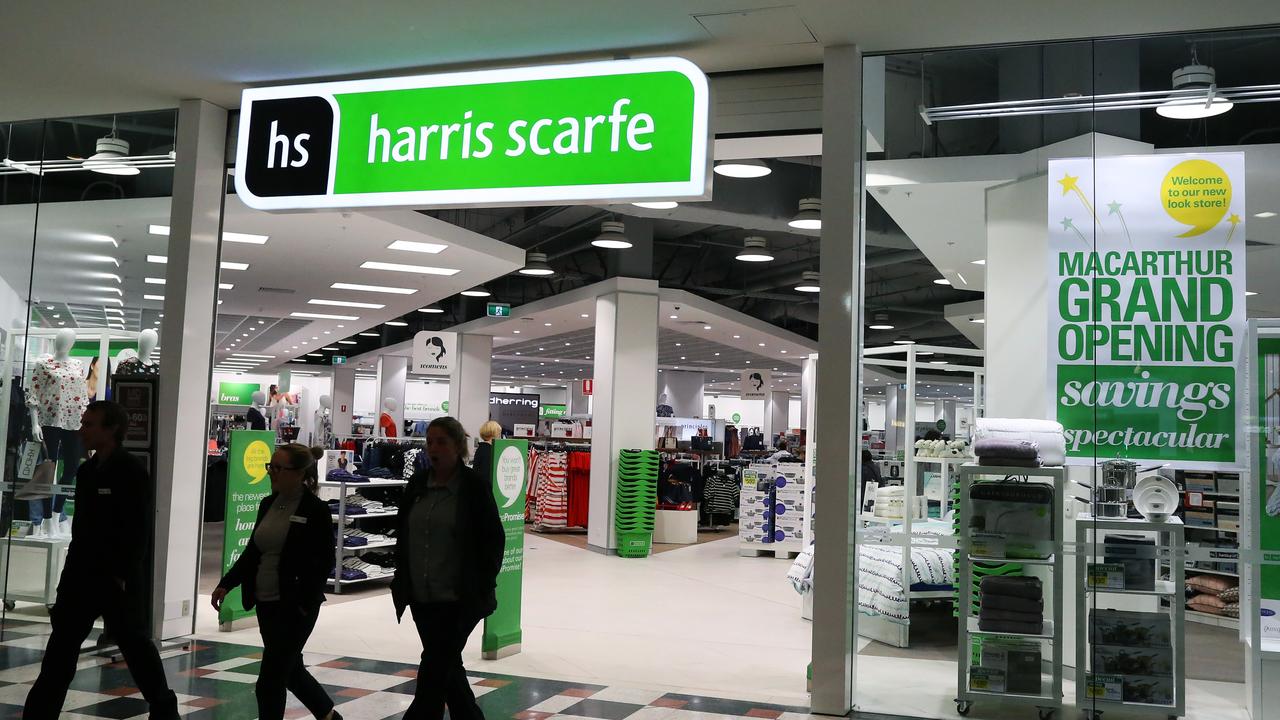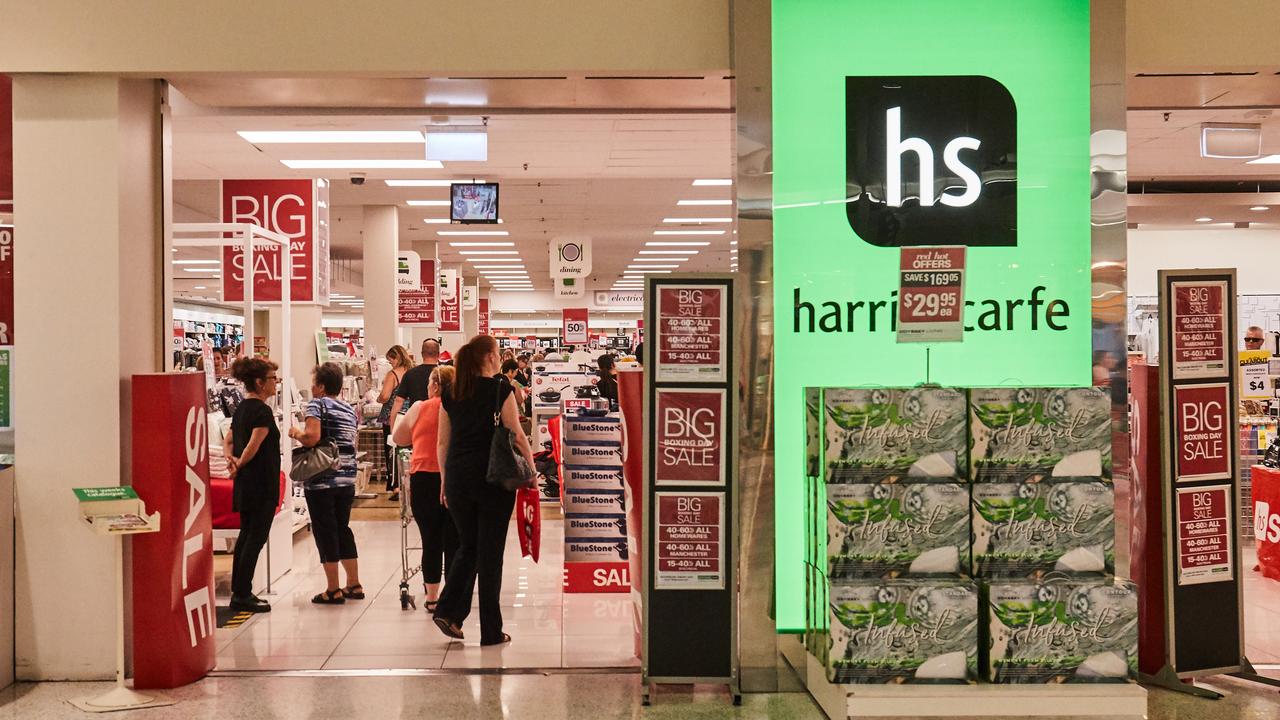Department store chain Harris Scarfe placed into voluntary administration
A popular $380 million Australian retail chain employing more than 1800 staff at 66 stores has been placed into voluntary administration.
Iconic Australian department store Harris Scarfe has been placed into voluntary administration, becoming the latest retail empire to fall victim to the sector’s dismal operating conditions.
The $380 million chain is best known in South Australia but has locations in Victoria, NSW, Queensland and Tasmania, employing more than 1800 staff across the country at 66 stores.

Trading will continue as normal over the Christmas period and employees will be paid by the receivers, says the appointed administrators Deloitte Restructuring Services (DRS).
“Harris Scarfe is a longstanding retail institution,” DRS partner Vaughan Strawbridge said.
“We will be making every effort to secure a future for the business and intend to commence an immediate sale of business process.”
The department store chain sells a wide variety of products, including bed linen, kitchenware, homewares, electrical appliances, and apparel.
Less than a month ago, Harris Scarfe was bought by a Sydney-based private equity firm — Allegro Funds — which specialises in turning around businesses.
RELATED: Kmart boss’ plan to transform Target
RELATED: Criniti’s calls in administrators and closes sites
RELATED: Gerry Harvey lashes out at “agitators”
Queensland University of Technology retail expert Dr Gary Mortimer said he believed it was only a matter of time before a big name in the sector was forced to pull up stumps.
“This is another example of being stuck in the middle,” he told news.com.au.
“At one end of the market we’ve got cheap and cheerful with Kmart still going strong and a revitalised Big W.
“And at the other end there’s David Jones, which is still struggling to find form, and Myer also.
“If you’re stuck in the middle and you’re constantly discounting, all you’re doing is eroding profit and conditioning consumers to never pay full price when they walk into your store.

Dr Mortimer said the closure of Harris Scarfe will send a shiver down the spines of rivals David Jones and Myer, with the end of the high-end department store networks imminent.
“Woolworths Holdings from South Africa, that owns David Jones, and certainly the new Myer team are very cautiously looking at the Australian market and particularly the traditional department store sector,” he said.
“They’re now implementing a number of strategies in order potentially insulate both brands from this shift in consumer behaviour.
“We’ve seen Myer downsize its fleet of stores and more recently we’ve seen David Jones closing floors.”
The receivers said the company will honour gift cards and lay-by deposits at Harris Scarfe in full.
SECTOR’S YEAR FROM HELL
In January, menswear retailer Ed Harry went into voluntary administration and a week later, Aussie sportswear favourite Skins also revealed it was on the brink of failure after applying for bankruptcy in a Swiss court.
At the end of the month, the Napoleon Perdis beauty empire announced the cult make-up chain’s 56 Aussie stores had closed for stocktake. Administrators were appointed, and scores of stores have since collapsed.
Footwear trailblazer Shoes of Prey also met its demise in March this year, along with British fashion giant Karen Millen, which in September revealed it would soon shut all Aussie stores, leaving around 80 jobs in peril.

In October, celebrity chef Shannon Bennett’s Melbourne burger chain Benny Burger was also placed into administration followed by seven Red Rooster outlets in Queensland just days later, and then Aussie activewear sensation Stylerunner, which has since been sold to Accent Group Limited.
Just weeks ago it was revealed that popular furniture and homewares company Zanui had collapsed after it abruptly entered voluntary administration, leaving some angry customers in the lurch.
In November, Muscle Coach, a leading fitness company, was put into voluntary administration after a director received a devastating diagnosis and the company racked up debts of almost $1 million.
Then it was the famous Criniti’s restaurant chain’s turn to enter into voluntary administration, with several of the 13 sites across the country set to be closed for good.
It was closely followed by discount legend Dimmeys, and then Co-op Bookshop, which went into administration owing $15 million.
And just weeks ago fast fashion staple Bardot also went into voluntary administration, blaming a “highly cluttered” and “increasingly discount-driven market”.

Are you employed at Harris Scarfe and want to have a chat? Get in touch | @James_P_Hall | james.hall1@news.com.au




